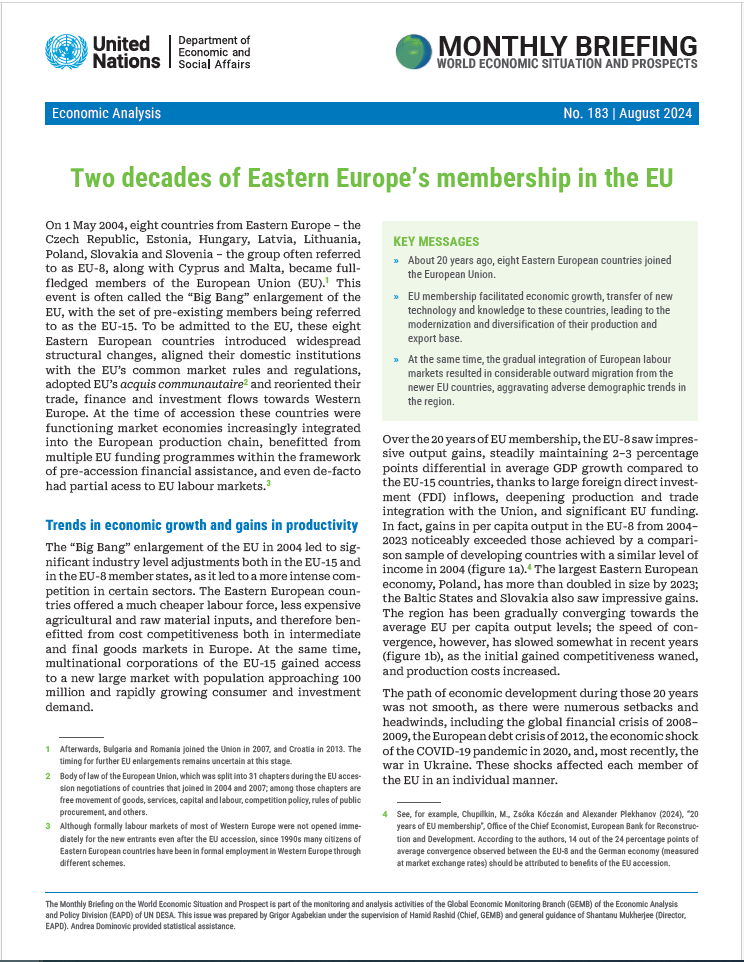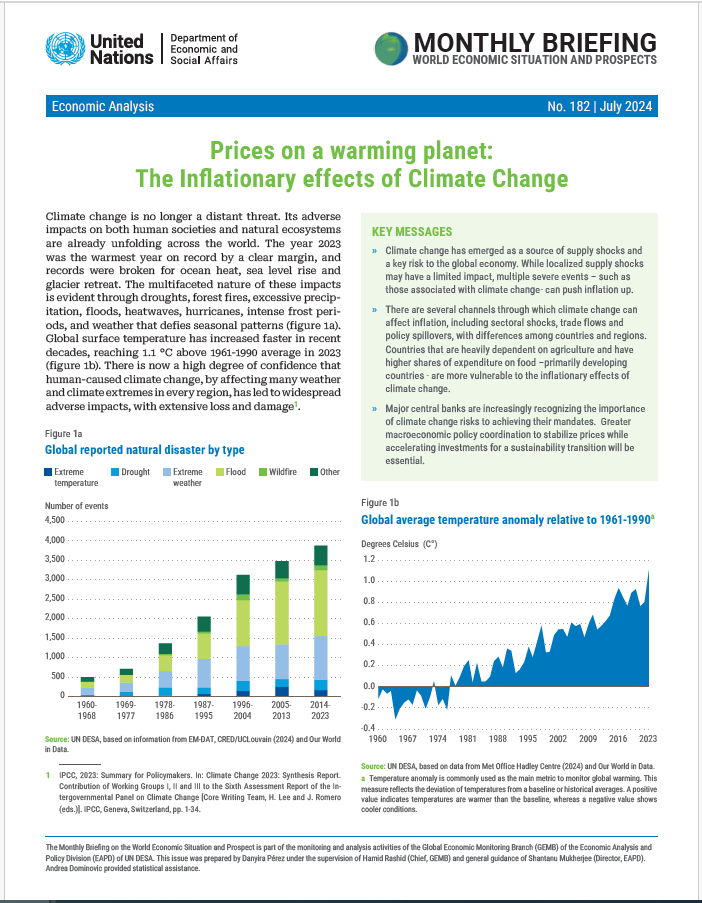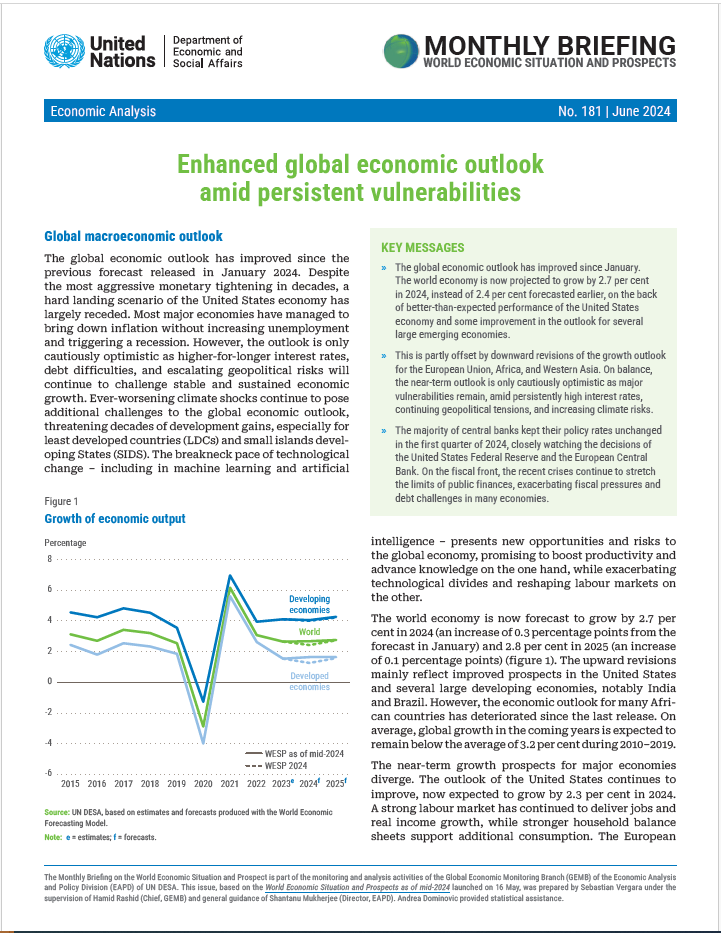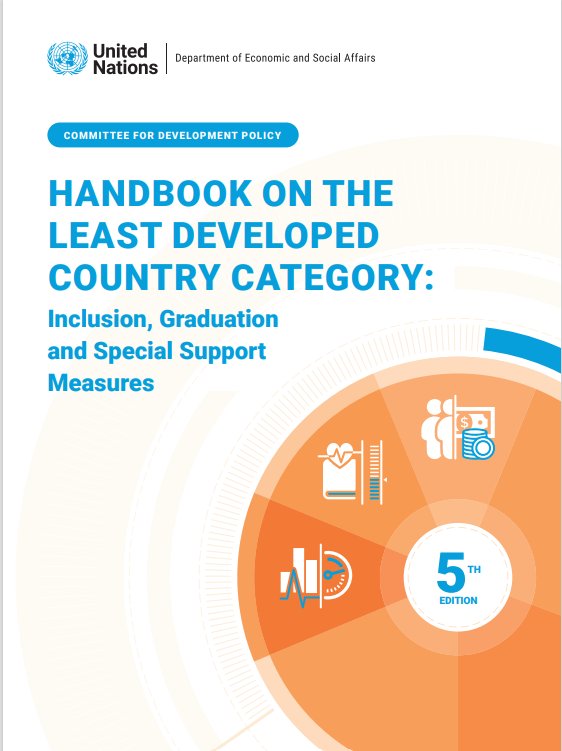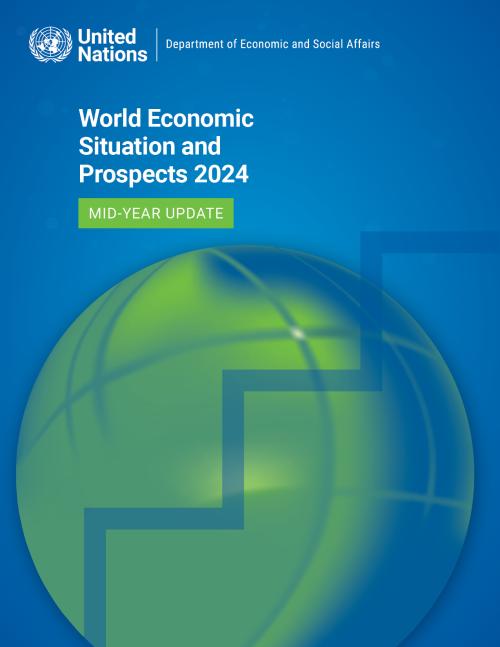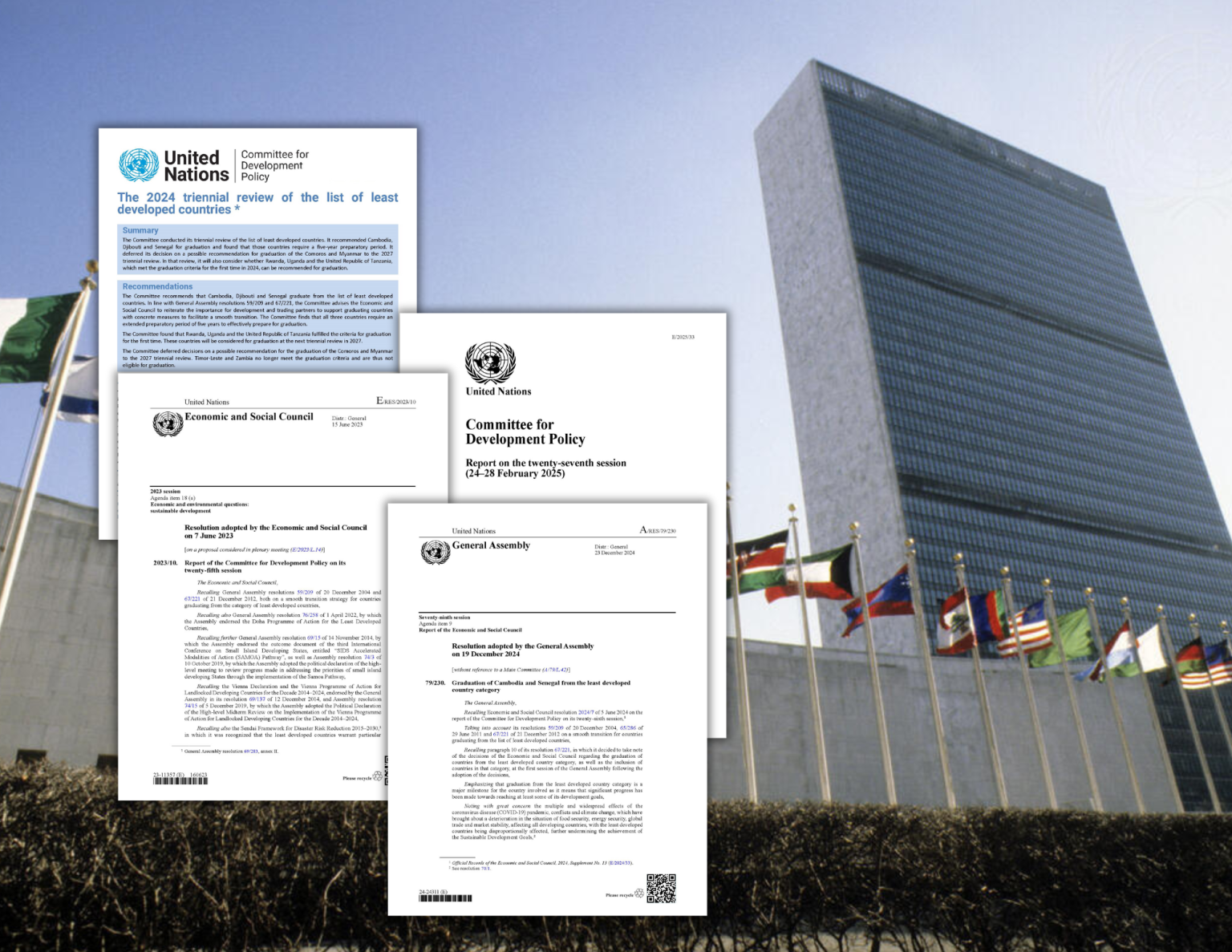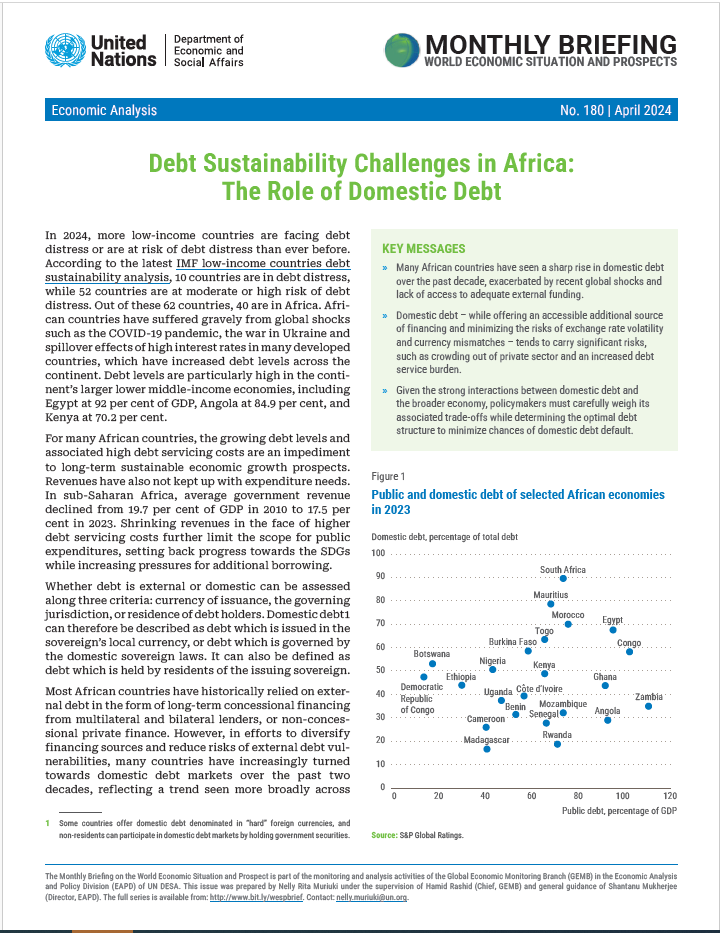Publications
Displaying 21 - 30 of 1078
Two decades of Eastern Europe’s membership in the EU On 1 May 2004, eight countries from Eastern Europe – the Czech Republic, Estonia, Hungary, Latvia, Lithuania, Poland, Slovakia and Slovenia – the group often referred to as EU-8, along with Cyprus and Malta, became full-fledged members of the European Union (EU). This event is often called the “Big Bang” enlargement of the EU, with the set of pre-existing members being referred to as the EU-15. To be admitted to the EU, these eight Eastern European countries introduced widespread structural changes, aligned their domestic institutions with the EU’s common market rules and regulations, adopted EU’s acquis communautaire and reoriented…
عربي, 中文, English, Français, Русский, Español CDP excerpts on the report by theme Innovation ecosystems for development, structural change and equity 2024 triennial review of the list of least developed countries Enhanced monitoring of countries that are graduating or have graduated from the list of least developed countries Graduation – the global context ECOSOC resolution (E/RES/2024/7) on the Report of the Committee for Development Policy
عربي, 中文, English, Français, Русский, Español GA resolution (A/RES/79/230) on the Graduation of Cambodia and Senegal from the least developed country category
…
Place: UNHQ, New York, USA Documents Agenda Report of the Committee for Development Policy (E/2024/33, Supplement No. 13)
عربي, 中文, English, Français, Русский, Español Triennial Review of the LDC Category Infographic: LDC category at the 2024 triennial review LDC Data page Countries approaching graduation and already graduated - LDC Portal Open Session/Development Policy Seminar - Innovation ecosystems: making intellectual property work for development, equity and structural change Link to the event page Briefing to LDCs Opening remarks by Mr. Kaushal Kishore Ray (Deputy Permanent Representative for Nepal to the United Nations in New York and LDC Group…
 Welcome to the United Nations
Welcome to the United Nations
